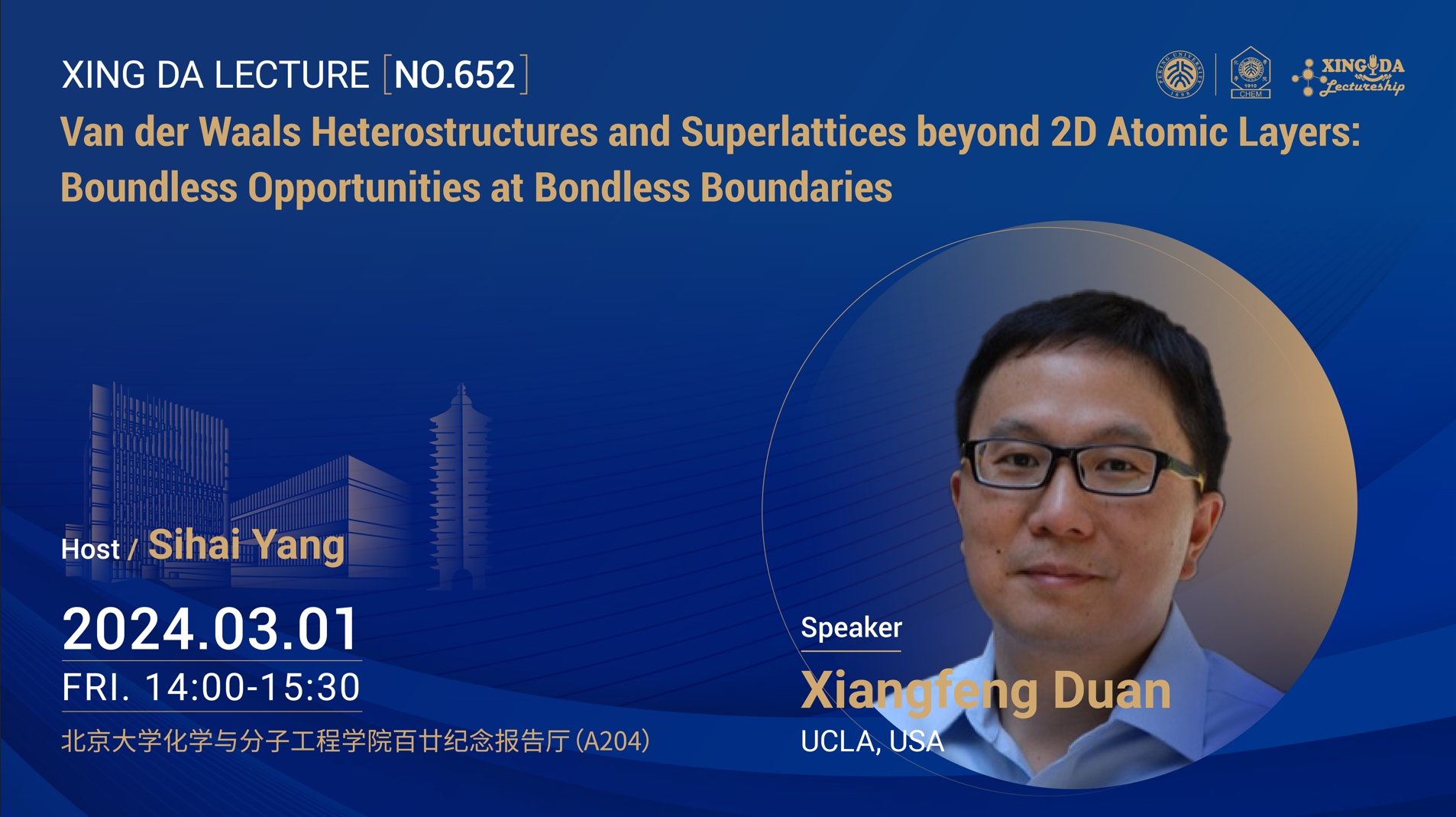
报告摘要
Van der Waals Heterostructures and Superlattices beyond 2D Atomic Layers:
Boundless Opportunities at Bondless Boundaries
The advent of two-dimensional atomic crystals and bonding-free van der Waals heterostructures (vdWHs) has inspired a new thinking on heterostructure construction beyond the limits of traditional epitaxial heterostructures. In this lecture, I start with a brief introduction the broad opportunities in exploring vdW interactions for heterogeneous integration of diverse building blocks to produce versatile heterostructures with pristine electronic interfaces. I will then focus our recent efforts in synthesizing and investigating a rich family of vdW superlattices (vdWSLs) consisting of alternating crystalline atomic layers and self-assembled molecular layers with designable chemical compositions and structural motifs. I will discuss how we may use the intercalated molecular layers to tailor the electronic and optical properties of various 2D atomic layers, and particularly highlight a unique class of chiral molecular intercalation superlattices hosting robust chiral-induced spin selectivity and elusive chiral superconductivity. With the versatile molecular design and modular assembly strategies, the 2D-molecular vdWSLs allow vast flexibility for weaving distinct building constituents into artificial solids with designable chemical modulation, structural topology and 3D potential landscape. It opens unprecedented ways to tailor the electronic, optical and quantum properties, thus defining a rich material platform for diverse emerging technologies.
报告人简介
Dr. Xiangfeng Duan received his B.S. Degree from University of Science and Technology of China in 1997, and Ph.D. degree from Harvard University in 2002. From 2002-2008, he was a Founding Scientist responsible for advanced technology development at Nanosys Inc., a nanotechnology startup founded based partly on his doctoral research. Dr. Duan joined UCLA with a Howard Reiss Career Development Chair in 2008, and was promoted to Associate Professor in 2012 and Full Professor in 2013. His research interest includes nanoscale materials, devices and their applications in future electronic and energy technologies. Dr. Duan has received many awards for his pioneering research in nanoscale science and technology, including MIT Technology Review Top-100 Innovator Award, NIH Director’s New Innovator Award, NSF Career Award, Alpha Chi Sigma Glen T. Seaborg Award, US Presidential Early Career Award for Scientists and Engineers (PECASE), ONR Young Investigator Award, DOE Early Career Scientist Award, Human Frontier Science Program Young Investigator Award, Dupont Young Professor, the Beilby Medal and Prize, International Society of Electrochemistry Zhao-Wu Tian Prize for Energy Electrochemistry, Materials Research Society Middle Career Researcher Award, IEEE Nanotechnology Council Distinguished Lectureship, and most recently the IEEE Pioneer Award in Nanotechnology. He is currently a Fellow of Royal Society of Chemistry, American Association for the Advancement of Science and National Academy of Inventors.